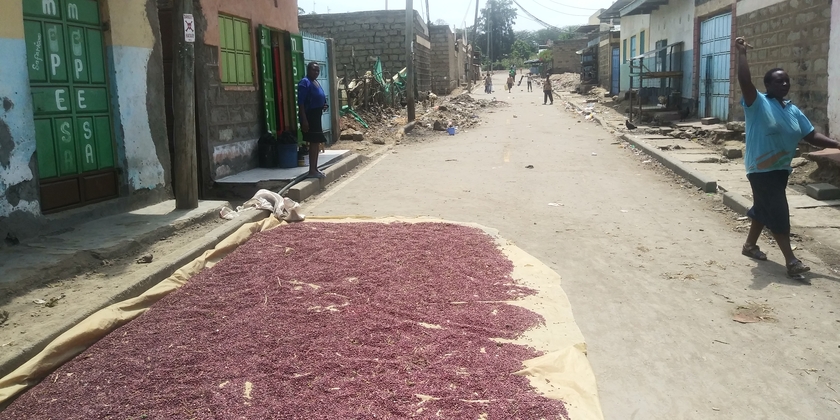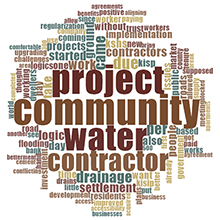Infrastructure upgrading
Do infrastructure upgrading interventions change the unsustainable trajectories of informal settlements?

Informal settlements present complex and challenging settings for new upgrading interventions with respect to infrastructure, basic services and technologies. Implementers such as planners and engineers, therefore have to understand these contexts as well as the dwellers that live therein as they are the eventual end-users. The Wings SUSIS research project seeks to understand and reconceptualise how and why these contexts perpetuate unsustainable trajectories and how interventions disrupt dwellers’ means of production and/or social reproduction.
Recent insights from Kasarani informal settlement in Kenya indicate that each activity that a dweller does routinely, whether productive activities such as seeking work, reproductive activities such as leisure, or using infrastructure, is associated with explicit or implicit rules that guide such activity. Therefore, we conceptualize activities as guided by semi-coherent rules that are interconnected to form observable patterns within a settlement. These interconnected patterns may perpetuate the trajectory of the settlement towards (un)sustainability. We observe that slum-upgrading interventions disrupt how, who and when dwellers use infrastructure. This consequently impacts the production and reproduction aspects of dwellers in varying ways, as exemplified by recent studies in the literature, by either altering settlements’ unsustainable trajectories or not.
Understanding how the production, reproduction and infrastructure use rules interconnect before and after upgrading, determines whether an intervention’s positive impacts will be sustained. For instance, a water supply intervention in an informal settlement has higher chances of succeeding if payment rules are flexible, for instance allowing for payments in kind or in small amounts over long periods. This aligns with settlement’s implicit rules of payments and misaligns with monthly billing as often preferred by water utilities.
Our findings thus provide a more encompassing understanding of the impacts of upgrading interventions, and why they may not necessarily change the unsustainable trajectories of settlements. It further provides a theoretical basis for the development of tools to assess and evaluate infrastructure interventions, not only in informal settlements, but also in other areas and on different scales.
Key insights
-) More encompassing concepts are required to understand how infrastructure disrupts livelihood strategies
-) A “regimes concept” currently in development could contribute to this
-) Next steps include enhancing the argument for the concept and developing a manuscript



